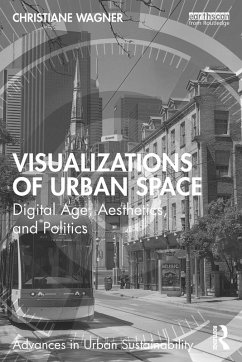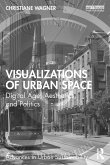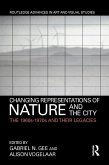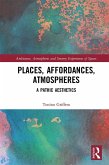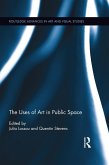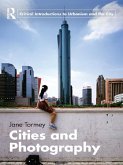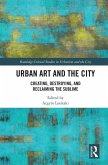Dieser Download kann aus rechtlichen Gründen nur mit Rechnungsadresse in A, B, BG, CY, CZ, D, DK, EW, E, FIN, F, GR, HR, H, IRL, I, LT, L, LR, M, NL, PL, P, R, S, SLO, SK ausgeliefert werden.
Lars Christian Grabbe, Dean, Professor Theory of Perception, Communication and Media, Münster School of Design, University of Applied Sciences Münster, Germany
"Christiane Wagner's sensible and powerful book Visualizations of Urban Spaces provides a welcome new consideration of the use of art and technology in designing inclusive urban spaces. Beyond being a brilliant read, this think-piece is a compelling guide through which cities can connect with their citizens in order to advance the global public good."
Frank-Jürgen Richter, Chairman, Horasis: The Global Visions Community, Switzerland
"Visualizing the city is part of the everyday aesthetic experience in which past, present, and future converge. In Visualizations of Urban Space, Christiane Wagner addresses the urban transformation related to the arts and architectural spaces as part of cities' material and immaterial heritage. Overall, this is a valuable contribution to the challenges of a more inclusive society, considering education, culture, and new technologies."
Edson Leite, Professor and President of the Research Commission at the Museum of Contemporary Art, University of Sao Paulo (MAC USP), Brazil
"Visualizations of Urban Space by Christiane Wagner is a timely contribution to the expanding literature on the dual role art and technology can play as positive forces in the way we see and experience urban space."
Gary Bratchford, President of the Visual Sociology Research Committee, Editor of Visual Studies Journal (Routledge), Senior Lecturer at the University of Central Lancashire, United Kingdom
"One of the most significant characteristics of modernity is urbanization, enormous and high-tech cities where people exchange not only economic goods and services but also culture. Visualizations of Urban Space by Christiane Wagner contains a deep analysis of how twenty-first-century cities become new environments that allow the speechless to have a voice, the invisible to have a presence and the oppressed to state their commands. This could be possible thanks to the intersection of technology, education, art and culture, resources that approach each other, to let societies become more democratic in these new urban spaces."
Omar Cerrillo Garnica, Director of the School of Humanities, Education, Architecture, Art and Design, at Tecnológico de Monterrey, Campus Cuernavaca, México

